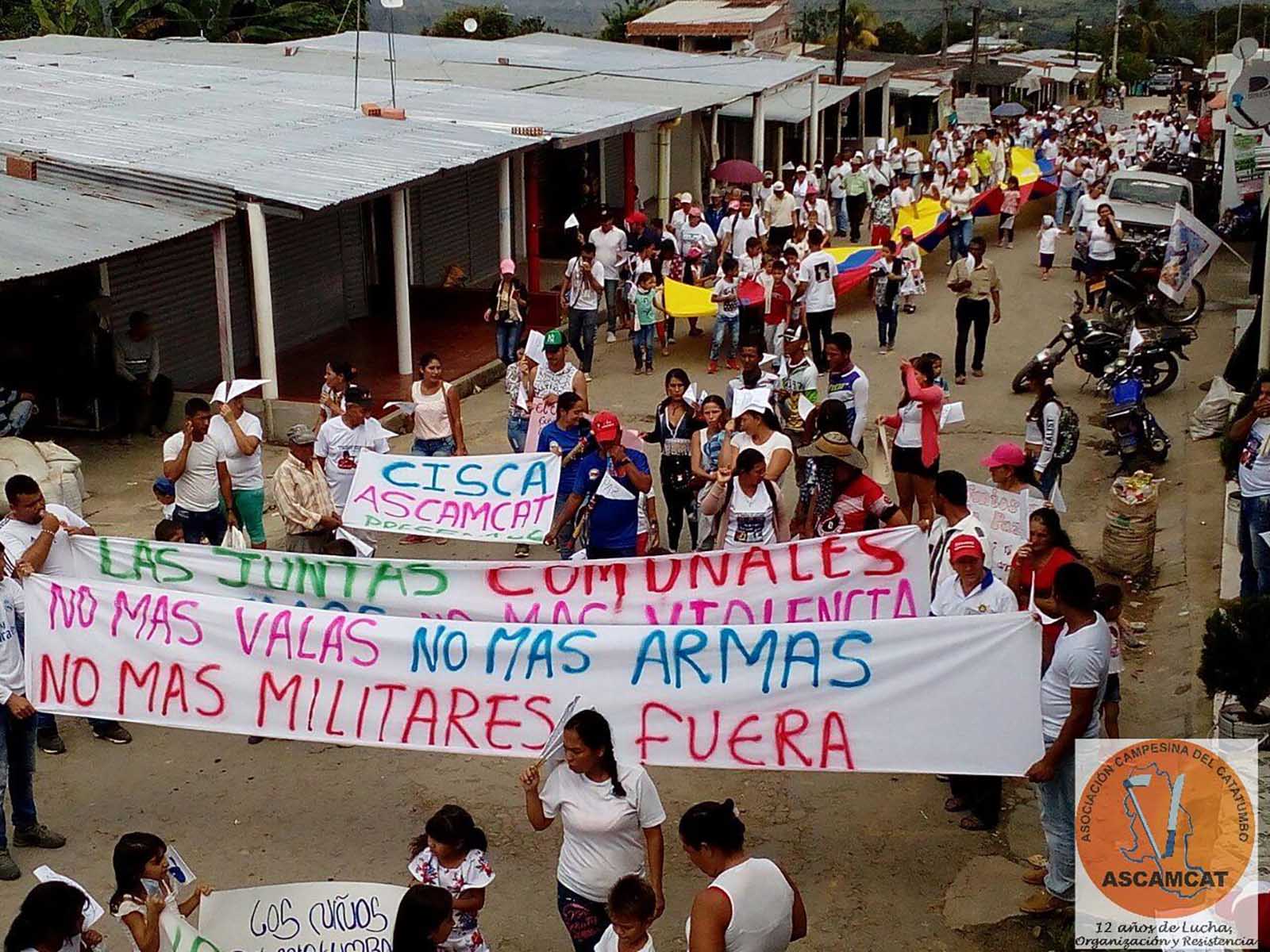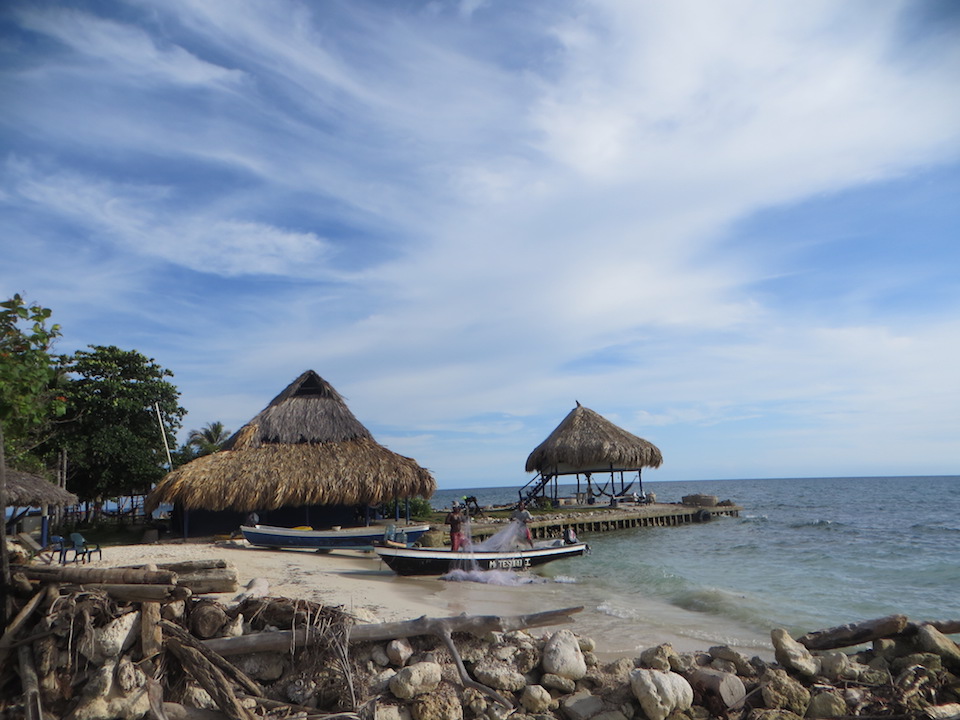
UN report condemns military for its role in human rights violations. Photo: ASCAMCAT
A United Nations report on the situation of human rights in Colombia in 2017 has called on the government to do more to protect rural communities as they continue to suffer from violence in the wake of the FARC’s disarmament.
Of considerable concern is the increase in violence in those areas declared as ZOMAC – zones most affected by the conflict. The report states that in three of these zones, the 2017 homicide rate was over ten times higher than in 2016. Mesetas in Meta saw the rate rise 1,095%, Magui Payán in Nariño 966% and El Carmen in Norte de Santander 916%.
The UN High Commissioner for Human Rights report, published on March 2, highlighted various elements that contribute to the problems of many rural communities going back decades.
Lack of access to healthcare, deficiencies in education, endemic violence and multidimensional poverty rates higher than the national average were all named as significant factors in the current climate of insecurity.
Preventable child deaths
For example, the report noted that in the municipality of Riosucio, Chocó, a lack of drinking water and health centres meant six children died from preventable causes between January and August. Additionally, the lack of consistency in hiring teachers and fragility of educational institutions “hinder access to quality education.”
The nature of these problems stems, to a large extent, from the “temptation to prioritise public spending in population to obtain votes, over spending to ensure access and enjoyment of basic rights in less populated and more deprived rural areas.”
These problems – especially the violence – are exacerbated by the increased activities of armed groups. “The weak state presence in these areas generates a lack of access to rights and opportunities for the communities to become part of the legal economy,” it stated. The report also noted that recently people had been murdered for supporting government policies such as crop substitution, rather than opposing them.
Whilst the report raised a number of concerns surrounding the government’s actions in the aftermath of the Peace Agreement, it did emphasise the difficulty of the task facing the current administration: “The problems suffered by rural communities are interconnected and multidimensional. Addressing these issues is complex.” Yet it also stressed the need for a change to the current strategy of the nationwide implementation of the Agreement. Instead, it urged the government to implement the Agreement in a “gradual, differential and focalized manner in order to generate tangible changes in a realistic number of communities as a first step.”
Military presence unhelpful
The report drew a clear line between the need for an increased state presence and the need to curb military operations, stating that “the sole presence of the State’s security forces seeking to impose its authority through force has not contributed to create a positive and sustainable change for the communities.”
According to national, regional and international human rights law, the military should not be responsible for public safety and law enforcement. OHCHR expressed concern over plans by the military (Directive 015 of 2016 of the Ministry of Defence) that justify their active participation in tasks of public safety.
Highlighting the 11 reported extrajudicial executions carried out last year, the report condemned the military for its role in human rights violations, urging the Colombian government to reduce its influence. Five of these executions were allegedly committed during public safety operations overseen by the military, matching the OHCHR’s concerns.
Most alarming in the report is that the OHCHR observed that “high-ranking officers in the chain of command, including those involved in the ‘false positives’ case, had been promoted in the last two years.” The apparent lack of any notion of justice or accountability is a worrying indicator that human rights violations carried out by the military will continue (illustrated by the extrajudicial killings), and few involved will face the consequences of justice.
Corruption
The report also illuminated the military’s active role in corruption. The OHCHR obtained information relating to military involvement in fuel-smuggling in Norte de Santander. According to Ecopetrol, 1,800 barrels were stolen in the first nine months of 2017. The report makes clear the potential damage this could do: “Corruption by members of the armed forces can economically empower criminal groups and other armed groups.”
Related: Social leaders under threat
The combination of the continued lack of state authority in rural areas combined with a military not acting in the best interests of communities may force them into the dominion of illegal armed groups. Doing so, according to the report, would have pernicious consequences for the future of the Peace Agreement: “The consolidation of armed groups and criminal organizations in these areas can substantially hamper the implementation of the Agreement and undermine potential human rights benefits of the peace process.”
What is clear from the findings of the report is that, although Colombia may have achieved a degree of peace with the disarmament of the FARC, there is still a long way to go.





